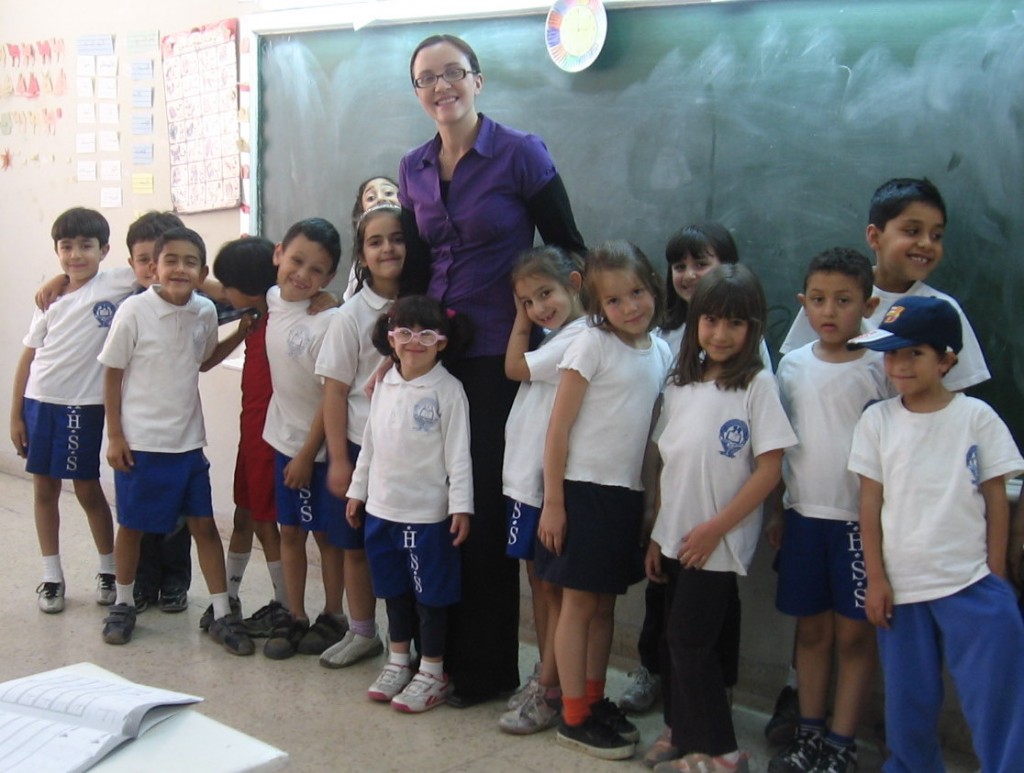 Yarn, a storytelling project highlighting the voices of Bulgarian youth, evolved incidentally. We did not go into our Fulbright year expecting to take on a project as large as Yarn became. In fact, we did not expect to do much more than assistant teach English at a foreign language high school—after all, we had applied for Fulbright English Teaching Assistant (ETA) grants, not research grants.
Yarn, a storytelling project highlighting the voices of Bulgarian youth, evolved incidentally. We did not go into our Fulbright year expecting to take on a project as large as Yarn became. In fact, we did not expect to do much more than assistant teach English at a foreign language high school—after all, we had applied for Fulbright English Teaching Assistant (ETA) grants, not research grants.
Yet, we were consistently inspired by the strength of our students’ insights and impressed that language was not a barrier to having meaningful conversations about life in Bulgaria. Hillary came up with the idea for a project. We would utilize an online storytelling format, in the tradition of popular podcasts, to create a platform for youth perspectives. And so, Yarn emerged.
We recorded the interviews in the spring of our grant year. After we returned to the United States, Kate and Dena met to edit the hours-long interviews into minute-long stories. We sought to preserve the core intentions of the interviewees as we worked to weave together their disjointed, yet deeply intertwined experiences towards a larger narrative. The topics inevitably threaded through the students’ stories spoke to issues of globalization, identity and the politics of daily life in a post-socialist state as perceived by youth born after 1989.
All of the individuals interviewed for this project have had the opportunity to study English at specialized language schools. The fact that their lives can be narrated in English, in their own voices, relates to their particular place in history and opens questions about contemporary life in Bulgaria and beyond. The experiences recorded are positioned to spur discussion and broaden the frameworks through which Bulgaria is often interpreted by outsiders.
Yarn is not a comprehensive study of Bulgarian youth. Some voices are heard more than others; many voices are not represented at all. Still, we feel that together the individual stories on Yarn tell one larger story—a story whose texture both shapes and is shaped by the opportunities that exist to speak and be heard.
Advice to future Fulbrighters:
1) Take the initiative to meet the people around you. Trust us: there is no more enjoyable way to spend your year than with the people of your host country. Make friends earlier rather than later. If you are a Fulbright ETA (and if it is appropriate in your host country), spend time outside of class with your students. Go out to coffee with them, or ask them to show you things in your town.
2) Take the initiative with projects, especially if you are a Fulbright ETA. Projects and outside activities are possible and Fulbright is supportive of them. If you are a Fulbright ETA, don’t be afraid to start extracurricular activities or individual side projects as long as they don’t eclipse the primary reason you are on your grant – to assistant teach English.
Photo: Hillary (left), Kate, and Dena (right), 2010-2011, Fulbright English Teaching Assistants to Bulgaria, pose next to a statue in Bulgaria’s capital city, Sofia

